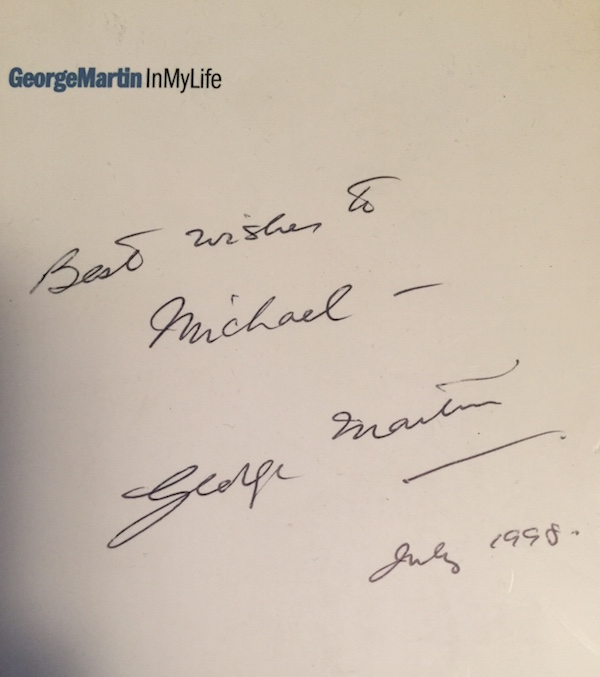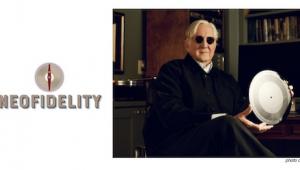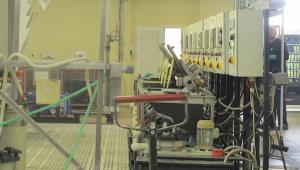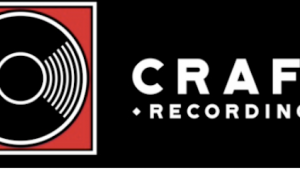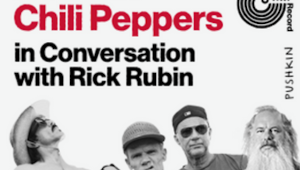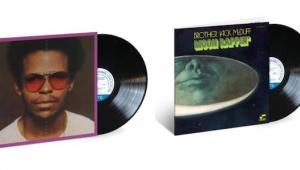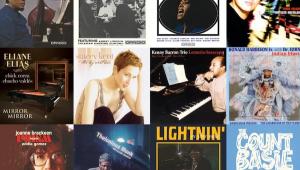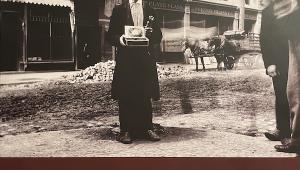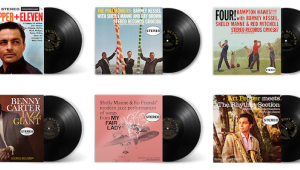Sir George Martin, Record Producer and Fifth Beatle Dead at 90

Analogplanet did not have one prepared and will not in haste write one today. Instead let's consider what Martin managed within and without The Beatles' legacy.
For starters, after every major English record label had rejected them, George Martin signed them to Parlophone, the semi-obscure EMI imprint he joined in 1950 and eventually came to run. As a staffer the trained oboist/composer/conductor first produced classical and light classical fare. Five years later at age 29 he became Parlophone's manager—the youngest in the EMI label group.
He expanded the label's reach to include jazz and comedy records that he produced, including ones by Peter Sellers, Peter Ustinov and the group "Beyond the Fringe" that included Peter Cook and Dudley Moore.
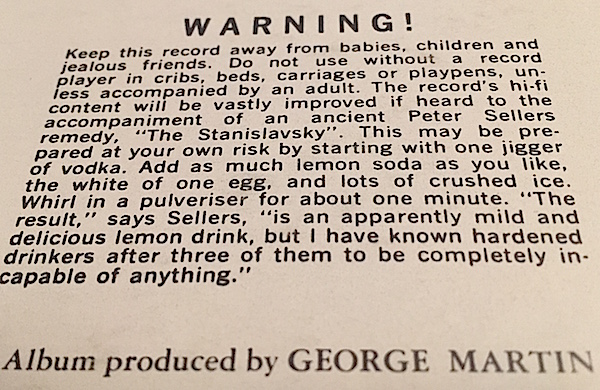
The photo is a section of the back cover of The Best of Peter Sellers (Angel S35884) produced by Martin that included this very funny send-up of the record care warnings then prevalent on album back jackets.
So what did Martin hear in the Beatles that others did not? It began with 78rpm acetates cut for Brian Epstein at the HMV record shop above which were the offices of Ardmore & Beechwood, one of EMI's publishing companies. The disc cutting engineer, Jim Foy, liked what he heard and when Epstein told him the original songs did not have a publisher, he suggested playing the tape for Sid Coleman, Ardmore & Beechwood's general manager.
Coleman was interested in a publishing deal but Epstein wanted a recording contract so Coleman called up his friend George Martin who was then head of A&R at Parlophone, but Martin was out of the office producing a record.
Martin and Epstein met the next day (May 9th, 1962) for a lacquer listen. According to Beatles biographer Mark Lewisohn, Martin's reaction was less than enthusiastic. "What I heard wasn't that impressive. The songs weren't very brilliant, but something there sounded quite interesting." Not quite a year earlier EMI had rejected The Beatles.
Martin wanted to hear the group in the studio so a session was booked that the four Beatles thought was their first formal EMI recording date, but it was really just an audition. Now legendary recording engineer Norman Smith was at the board for the session that didn't go particularly well but midway through he heard something he felt was worth a Martin listen.
Again Martin was intrigued but not impressed. Following the session, after Martin and Smith had served up serious criticism and there was no reaction at all from the boys, he said "Look, I've laid into you for quite a time, you haven't responded. Is there anything you don't like?"
No one responded until quite some time later George Harrison broke the uncomfortable silence with "Yeah, I don't like your tie". Everyone cracked up and according to Lewisohn (in his "The Complete Beatles Recording Sessions") the next fifteen or twenty minutes was "pure entertainment".
Still, according to Lewisohn, both Martin and the producer Ron Richard to whom Martin had assigned the session, felt that what they heard was just "okay" and "nothing special". Yet shortly thereafter, Martin signed The Beatles anyway. And the rest as they say....
So what caused Martin to sign them? Sure, he later said "I've got nothing to lose," but I suspect the humorous, entertaining encounter after that first session played a part. Martin had produced the aforementioned comedy talent and here were four funny and entertaining guys, who, it turns out, had grown up listening to the George Martin-produced comedy albums.
A year later EMI was raking it in thanks to The Beatles and other rock'n'roll artists he began producing but Martin, on staff, saw none of it. He suggested a royalty based deal that EMI turned down so he left the company and formed AIR (Associated Independent Recording). Of course The Beatles demanded Martin remain the group's producer and of course he did.
In addition to opening recording studios, one, in Montserrat was destroyed in a 1989 hurricane and the other AIR Lyndhurst in London, which remains open, Martin continued composing and arranging. In the late 1990s he went on the lecture circuit talking about, of course, The Beatles and he collaborated with son Giles in 2006 on the Love soundtrack for the Cirque de Soleil show still running in Las Vegas's Mirage Hotel.
In 1998 Martin produced In My Life an unusual compilation of mostly Beatles covers sung by an odd assortment of talent including Robin Williams, Goldie Hawn, Jeff Beck, Céline Dion, Jim Carrey, Phil Collins, Sean Connery and Billy Connelly.
During the tour promoting that release I had the opportunity to meet and interview Sir George Martin. An honor and quite a thrill.

He was kind enough to autograph both an original stereo Parlophone copy of Rubber Soul and the 2 CD In My Lifebox set.
The photo heading this story shows Sir Martin looking though a special Beatles edition of The Tracking Angle—the magazine I edited and published with my friend and partner Nick Despotopoulos. Putting it in Sir George's hands was very special.
So thank you Sir George Martin, for all that you did to enrich all of our lives. Oh, and please say "hello" to Peter Sellers for me and tell him "birdy num num!"
